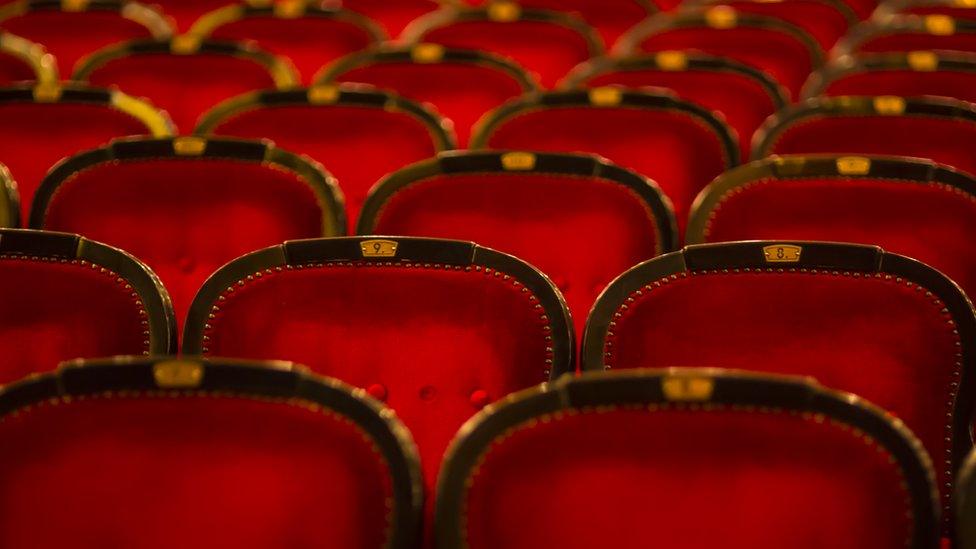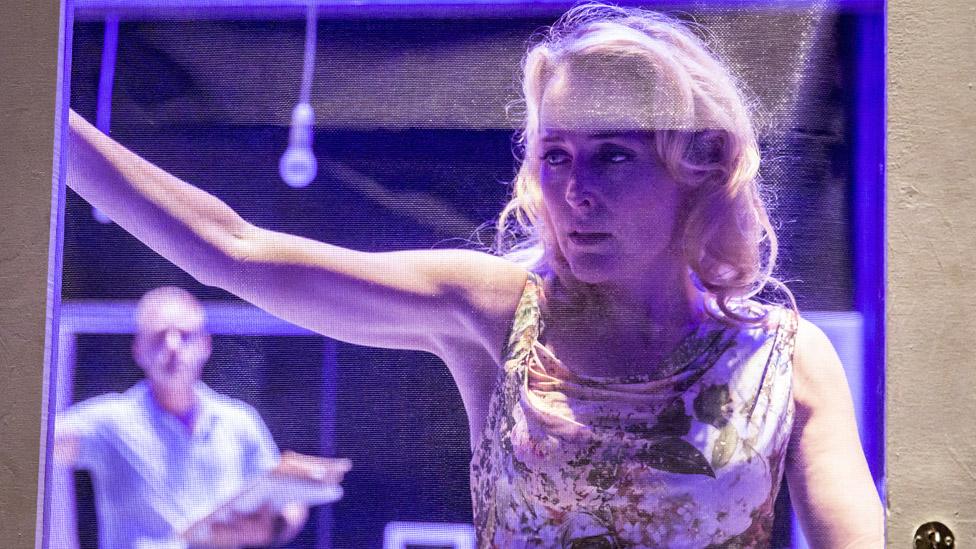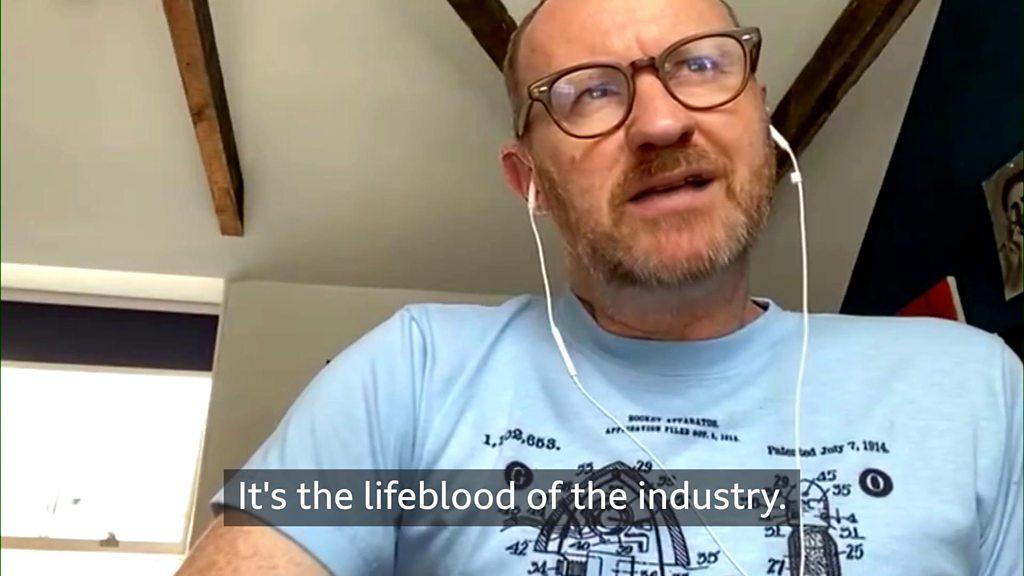Coronavirus: Report suggests arts industry faces 'ruinous losses'
- Published

While cinemas and galleries are planning to reopen, theatres and concert venues will remain closed for now
A cut in public funding has left the arts sector more exposed to the threat of Covid-19, new figures suggest.
The latest Arts Index, published annually, showed public investment in arts per head of the population fell by 35% in the last decade.
However, earned income by arts organisations from things like box office ticket sales increased by 47%.
The government said it was working with the arts sector directly on how to reopen safely and plan for the future.
The Arts Index is published by The National Campaign for the Arts (NCA), and acts as a snapshot report of the health of England's arts and culture.
It is published in partnership with the Creative Industries Federation and King's College London and compares year-on-year figures using 20 key indicators.
The latest index, published on Monday, puts the recent figures in the context of the last decade, which saw a UK recession prompt a shift in the income streams for arts organisations.
What does the latest Arts Index say?
After the 2008 financial crash, the arts sector witnessed a significant drop in public funding, business support and philanthropic giving
Investment via public funding for the arts per head of population - via the Lottery, local and national government - has dropped by 35% since then, with local government funding for the arts falling by 43%
However, earned income increased by 47% - with arts organisations becoming more reliant on money made from ticket sales, catering and venue hire
This shift from subsidy to private income has left the arts sector significantly more exposed to the threat from Covid-19
While galleries and cinemas are putting plans in place to reopen, theatres and concert venues will remain closed for the foreseeable future.
The chair of the NCA, Samuel West, said: "Arts organisations rose to the challenge following the financial crash; we salute them for increasing earned income in response to a triple whammy of cuts to public funding, business sponsorship and philanthropic giving.
"It's bitterly ironic that the arts sector's resourceful response to the 2008 financial crash is now the very thing that makes it vulnerable to the COVID-19 crisis, with theatres closed and income from tickets and bars dropping off a cliff."
Actor and writer Mark Gatiss talks to PM about the importance of regional theatre
The NCA said the sector had been "brought to its knees" amid the coronavirus pandemic, adding that many companies now face "ruinous losses".
A spokesman for the Department for Digital, Culture, Media and Sport (DCMS) told BBC News: "The government has announced unprecedented financial aid for the arts and cultural sectors, including the Self Employed Support Scheme, the job retention scheme, a year's business rates holiday, and the Arts Council's £160 million emergency response package.
"We want to help those organisations that have worked hard to become a commercial success, and we are working directly with the arts sector on how it can reopen safely and plan for the future."
In October, DCMS announced £250m of funding for the cultural and creative sector - the biggest one-off government investment in cultural infrastructure, local museums and neighbourhood libraries in the last century.
Culture Secretary Oliver Dowden told The Evening Standard on Monday:, external "I am not going to stand by and see our world-leading position in arts and culture destroyed... Of course I want to get the money flowing, I am not going to let anyone down."
Discussing his negotiations with the treasury about further financial aid, he said: "Not everyone is going to be happy with whatever comes up. I'm going to have to ask institutions to take difficult decisions".
The latest index notes that the West End weathered the financial storm that started in 2008 particularly well, and since 2013 the sector saw real terms growth in revenues practically every year to 2018.
It also states that financial support from arts trusts and foundations jumped by 38% between 2014 and 2018.
However, the index showed the proportion of all GCSEs being taken in creative subjects is down 20% since 2010.

Follow us on Facebook, external, or on Twitter @BBCNewsEnts, external. If you have a story suggestion email entertainment.news@bbc.co.uk, external.
- Published14 May 2020

- Published4 June 2020
